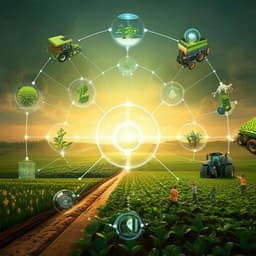
Agriculture
Transitioning to low-carbon agriculture: the non-linear role of digital inclusive finance in China's agricultural carbon emissions
H. Li, H. Tian, et al.
Discover how digital inclusive finance influences agricultural carbon emissions in China, revealing an intriguing inverted U-shaped relationship. This research, conducted by Hanjin Li, Hu Tian, Xinyu Liu, and Jiansheng You, uncovers critical insights on the interplay between finance, emissions, and agricultural practices from 2011 to 2021.
Related Publications
Explore these studies to deepen your understanding of the subject.







